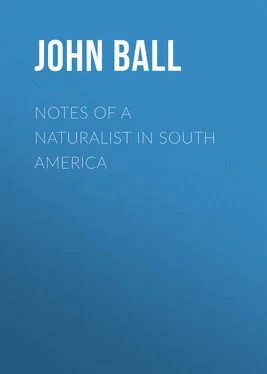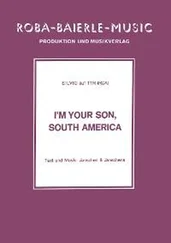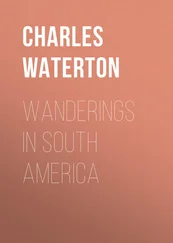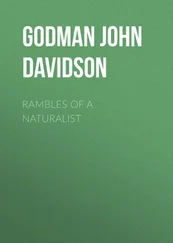John Ball - Notes of a naturalist in South America
Здесь есть возможность читать онлайн «John Ball - Notes of a naturalist in South America» — ознакомительный отрывок электронной книги совершенно бесплатно, а после прочтения отрывка купить полную версию. В некоторых случаях можно слушать аудио, скачать через торрент в формате fb2 и присутствует краткое содержание. Жанр: foreign_antique, foreign_prose, на английском языке. Описание произведения, (предисловие) а так же отзывы посетителей доступны на портале библиотеки ЛибКат.
- Название:Notes of a naturalist in South America
- Автор:
- Жанр:
- Год:неизвестен
- ISBN:нет данных
- Рейтинг книги:4 / 5. Голосов: 1
-
Избранное:Добавить в избранное
- Отзывы:
-
Ваша оценка:
- 80
- 1
- 2
- 3
- 4
- 5
Notes of a naturalist in South America: краткое содержание, описание и аннотация
Предлагаем к чтению аннотацию, описание, краткое содержание или предисловие (зависит от того, что написал сам автор книги «Notes of a naturalist in South America»). Если вы не нашли необходимую информацию о книге — напишите в комментариях, мы постараемся отыскать её.
Notes of a naturalist in South America — читать онлайн ознакомительный отрывок
Ниже представлен текст книги, разбитый по страницам. Система сохранения места последней прочитанной страницы, позволяет с удобством читать онлайн бесплатно книгу «Notes of a naturalist in South America», без необходимости каждый раз заново искать на чём Вы остановились. Поставьте закладку, и сможете в любой момент перейти на страницу, на которой закончили чтение.
Интервал:
Закладка:
PANAMA SHIP CANAL.
In the interest of the human race, it is impossible not to desire the success of the Ship Canal, but it must not be forgotten that the project is of a character so gigantic that all previous experience, such as that of the Suez Canal, fails to give a measure of the difficulties to be encountered, or of the outlay required to overcome them. Engineers may doubtless calculate with sufficient accuracy the number of millions of cubic yards of rock or earth that must be removed, and may estimate approximately the cost of labour and materials; but the obstacles due to the climate and physical conditions of this region are a formidable addition whose amount experience alone can fully determine. The only race combining physical strength with any moderate adaptation to the climate is apparently the African negro, and even with these the amount of sickness and mortality is said to be alarmingly great. The field from which negro labour can be recruited, though large, is by no means unlimited, and it is to be expected that the rate of wages must be considerably increased as time advances. The conditions of the problem have no doubt been carefully studied by the remarkable man to whom its existence is due, and by the able assistants whom he has consulted; but it may not be too rash to hazard the prediction that, apart from any international difficulties, its success may depend upon the more or less complete realization of two desiderata – first, the extensive application of labour-saving machinery, for which perhaps the heavy rainfall may supply the motive power; secondly, the possibility, by completely clearing the summits of some of the higher hills near the line, of establishing healthy sites whence workmen could be conveyed to the required points during the day and brought back before nightfall.
EQUATORIAL VEGETATION.
Nothing in our brief experience suggested the idea of an especially unhealthy region, and the feelings of a botanist at being whirled so rapidly through a land teeming with objects of curiosity and interest are better imagined than expressed. For more than half the distance the line is simply a trench cut through the forest, which is restrained from invading and burying the rails only by constant clearing on either side. The trees were not very large, but seemed to include a vast variety of forms. More striking were the masses of climbers, parasites, and epiphytes, to say nothing of the rich and strange herbaceous plants that fringed the edge of the forest. Our train, being express, gave but a single chance of distinguishing anything amid the crowd of passing objects – during a brief halt at a station about half-way across the isthmus, round which was a cluster of small houses or huts, inhabited by Indians. Their features were much less remote from the European type than I had expected – less remote, I thought, than those of many Asiatics of Mongol stock. Ten minutes on the verge of the surging mass of vegetation that surrounded us gave a tantalizing first peep at the flora of Equatorial America. Many forms hitherto seen only in herbaria or hot-houses – several Melastomaceæ , Heliconia , Costus , and the like – were hastily gathered; but the summons to return to the train speedily calmed the momentarily increasing excitement. Although the sky was almost completely free from clouds, and the sun very near the zenith, the heat was no way excessive. My thermometers had been stowed away in the hurry of leaving the steamer, but I do not believe that the shade temperature was higher than 84° Fahr. On the western side of the isthmus the land rises into hills some five or six hundred feet in height, and between these the railway winds to the summit level, thence descending rather rapidly towards Panama. What a crowd of associations are evoked by the first view of the Pacific! What trains of mental pictures have gathered round the records of the early voyagers, the adventurers, the scientific explorers! Strangely enough, the most vividly impressed on my memory was a rough illustration in a child’s book, given to me on my seventh birthday, representing Vasco Nuñez, as, from the summit of the ridge of Darien, he, first of all western men, cast his wondering eyes over the boundless, till then unsuspected, ocean. He has climbed the steep shattered rocks, and, as he gains the crest of the ridge, has grasped a projecting fragment to steady himself on the edge of the dizzy declivity. Even now, after looking on the gently swelling hills, so completely forest-covered that without extensive clearing a distant view would be impossible, I find it hard to believe that that picture does not represent some portion of my actual past experience.
I do not know whether, in connection with the vivid recollection either of actual scenes or illustrations dating from early life, attention has been sufficiently called to the curious tricks which the brain not seldom performs in discharging its function of keeper of the records. In my experience it is common to find, on revisiting after many years a spot of which one believes one’s self to have a vivid and accurate recollection, that the mental picture has undergone some curious changes. The materials of the scene are, so to say, all present, but their arrangement has been unaccountably altered. The torrent, the bridge, the house, the tree, the peak in the background, are all there, but they are not in their right places. The house has somehow got to the wrong side of the torrent, or the peak rises on the right of the tree instead of the left. A picture vividly retained in the mind is one that has been frequently recalled to memory. If at any time, when it has been long dormant, the actual recollection has become somewhat imperfect, the imagination fills up by an effort the incomplete portion. When next summoned by some train of association, the image present to the mind is no longer the original picture, but the altered version of it in the state in which it was left after being last retouched.
GRAND HOTEL OF PANAMA.
In about four hours from Colon we reached the Panama terminus, and found a large waggonette, or roofless omnibus, waiting to convey us to the Grand Hotel. A pair of small ragged horses, rushing at a canter down the steep slopes and scrambling up on the other side over the rough blocks that form the pavement, made our vehicle roll and jolt in a fashion that would have disquieted nervous passengers. It would be difficult to find elsewhere in the world a stranger assemblage than that to be found at the Grand Hotel of Panama. The ground floor, with several large rooms, is occupied day and night for eating, drinking, smoking, and loud discussion by the floating foreign population of the town. At the present time the engineers and other officials connected with the Ship Canal formed the predominant element; but, along with a sprinkling of many other nationalities, the most characteristic groups consisted of refugees from all the republics of Central and South America, who find substantial reasons for quitting their homes, and who resort to Panama as a sanctuary whence some new turn in the wheel of revolution may recall them to some position of distinction and profit.
We were fortunate in having in our company Mr. W – , a gentleman of Polish descent, to whose lively conversation we had owed much information and amusement during the voyage from Southampton. Now the owner of a large estate in Ecuador, he had long known this region, and appeared to be on terms of familiar acquaintance with all the strange visitors gathered in the saloons at Panama, from the ex-President of Peru to the negro head-waiter. The latter, as we learned, was not the least important member of the assemblage. In one of the numerous revolutions at Panama he had played a leading part, and had attained the rank of colonel. His party being then out of office, he had for the time returned to private life, but may possibly at the present day be again an important person in the state.
Читать дальшеИнтервал:
Закладка:
Похожие книги на «Notes of a naturalist in South America»
Представляем Вашему вниманию похожие книги на «Notes of a naturalist in South America» списком для выбора. Мы отобрали схожую по названию и смыслу литературу в надежде предоставить читателям больше вариантов отыскать новые, интересные, ещё непрочитанные произведения.
Обсуждение, отзывы о книге «Notes of a naturalist in South America» и просто собственные мнения читателей. Оставьте ваши комментарии, напишите, что Вы думаете о произведении, его смысле или главных героях. Укажите что конкретно понравилось, а что нет, и почему Вы так считаете.












